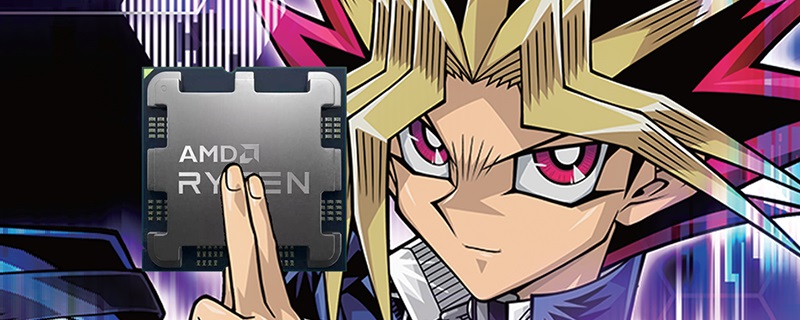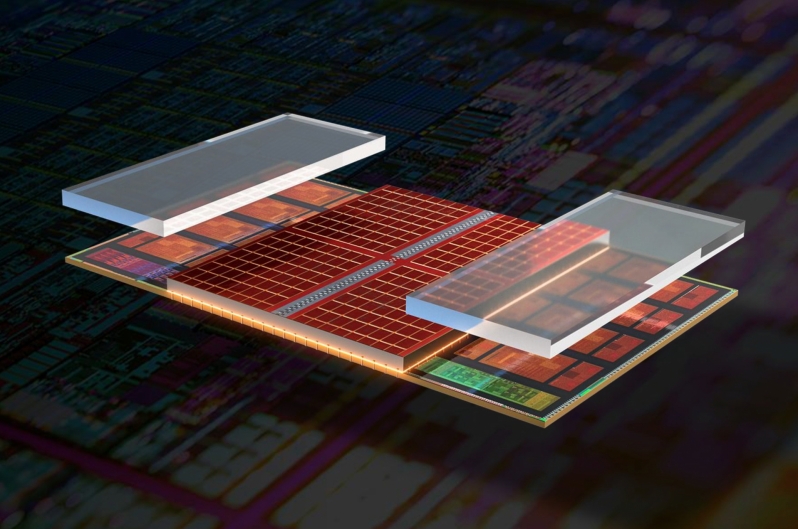AMD’s Enhanced Ryzen 9 7950X3D is reportedly up to 33% faster than Intel’s i9-13900K in games
AMD’s Ryzen 7000 X3D CPUs are set to make them the king of games
Rumour has it that AMD plans to reveal new Ryzen 7000 series processors at CES, bringing back to the forefront the company’s 3D V-Cache technology to once again give the company’s processors additional cache and enhanced gaming performance.Â
According to many recent reports, AMD plans to release their Ryzen 7000 X3D series processors in late January, arriving in the form of new 8-core, 12-core, and 16-core processors. These new CPUs will likely be called the Ryzen 7 7800X3D, the Ryzen 9 7900X3D, and the Ryzen 9 7950X3D. These CPUs will utilise AMD’s 3D V-Cache technology to offer gamers larger internal caches that are designed to enhance game performance.Â
AMD’s 3D V-Cache allows CPUs to feature more internal cache, increasing both the bandwidth and size of their CPU’s on-chip data storage. On-chip data is faster to access than off-chip data, allowing CPUs with larger caches to accelerate workflows by reducing the amount of time that processors need to wait for data. AMD has already showcased the benefits of their 3D V-Cache technology with their Ryzen 7 5800X3D processor.Â
It has been claimed by some sources that AMD’s planned Ryzen 7000 X3D processors will feature fewer downsides than their last-generation Ryzen 7 5800X3D. For starters, AMD’s Ryzen 7000 X3D chips are expected to feature similar clock speeds to their non-X3D counterparts, giving these new X3D chips no downside when compared to their non-X3D counterparts. AMD’s Ryzen 7 5800X3D features lower clock speeds than the Ryzen 7 5800X, making it slower in some workloads.Â
In gaming workloads it has been claimed that AMD’s Ryzen 7950X3D processors can be up to 33% faster than Intel’s i9-13900K processor in gaming workloads, though it is worth noting that the impact of AMD’s 3D V-Cache differs on a game-by-game basis. In leaked benchmark results from Quasar Zone, AMD’s Ryzen 7 7950X3D was able to beat Intel’s i9-13900K by 33% in one game, 15% in another, and by just 5% in a different game. Â
Will AMD become the king of games?
Without 3D V-Cache, AMD’s Ryzen 7000 series competes well with Intel’s 13th Generation Raptor Lake processors under gaming workloads, with AMD besting Intel in some games while Intel bests AMD in others. With the addition of 3D V-Cache, AMD will be able to best Intel across a broader variety of games, and in some games the addition of V-Cache will give AMD an overwhelming advantage.
The impact of AMD’s 3D V-Cache technology will differ on a game-by-game basis, with games like Factorio and Stellaris being likely strong points for AMD’s new Ryzen 7000X3D processors. That said, some games will not see their performance change dramatically thanks to AMD’s addition of V-Cache.
With Ryzen 7000X3D processors on the horizon, 2023 is shaping up to be an interesting year for AMD, especially if the company can make their AM5 platform more affordable.Â
You can join the discussion on AMD’s Ryzen 700X3D processors on the OC3D Forums.Â




